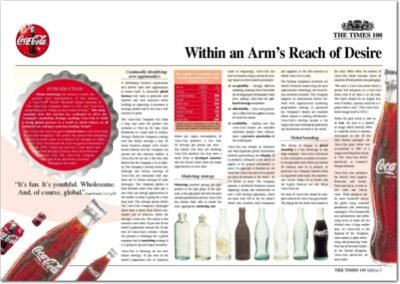Dark social refers to the sharing of content through private channels that are not easily tracked by traditional web analytics tools. This includes platforms such as messaging apps, email, and private social media groups. Unlike public social media shares, which can be monitored and analysed, dark social interactions occur in a more clandestine manner, making it challenging for marketers to gauge the true reach and impact of their content.
The term was popularised by Alexis Madrigal in 2012, who highlighted how much traffic was being driven to websites from these untraceable sources. The essence of dark social lies in its anonymity and privacy. When users share links via direct messages or private groups, the referrer information is often stripped away, leading to a significant portion of web traffic being categorised as “direct.” This lack of visibility can create a blind spot for marketers, who may underestimate the effectiveness of their content and campaigns.
Understanding dark social is crucial for businesses aiming to optimise their marketing strategies, as it represents a substantial segment of online sharing that traditional metrics fail to capture.
Summary
- Dark social refers to the sharing of content through private channels such as messaging apps and email, making it difficult for marketers to track and measure.
- Dark social can have a significant impact on marketing as it accounts for a large portion of online sharing and can influence consumer behaviour.
- Identifying dark social traffic can be challenging, but using unique URLs and shortened links can help marketers track and analyse this type of traffic.
- Strategies for leveraging dark social in marketing include creating shareable content, encouraging social sharing, and using referral programs to incentivise sharing.
- Tools for tracking dark social activity include Google Analytics, Bitly, and social listening tools, which can help marketers understand how their content is being shared privately.
The Impact of Dark Social on Marketing
The implications of dark social on marketing strategies are profound. As consumers increasingly favour private communication channels over public ones, brands must adapt their approaches to engage effectively with their audiences. The challenge lies in the fact that dark social traffic can account for a significant percentage of overall website visits—some studies suggest that it can represent up to 84% of all outbound sharing.
This means that marketers may be missing out on valuable insights and opportunities if they do not account for this hidden traffic. Moreover, dark social can influence brand perception and customer loyalty. When users share content privately, it often indicates a level of trust and endorsement that is more potent than public shares.
For instance, a recommendation from a friend via WhatsApp may carry more weight than a tweet from a brand’s official account. This dynamic necessitates a shift in how marketers view engagement metrics; rather than solely focusing on likes and shares, they must also consider the qualitative aspects of dark social interactions and how these contribute to building relationships with consumers.
Identifying Dark Social Traffic

Identifying dark social traffic poses a unique challenge for marketers, primarily due to the lack of direct tracking capabilities associated with private sharing. However, there are several methods that can be employed to gain insights into this elusive segment of web traffic. One effective approach is to analyse referral data in web analytics tools.
By examining the sources of direct traffic, marketers can infer potential dark social activity. For example, if a website experiences a sudden spike in direct traffic after a specific piece of content is shared within a private group, it may indicate that dark social sharing is at play. Another method involves using UTM parameters in links shared across various channels.
By appending specific tags to URLs, marketers can track the performance of content shared through different platforms, even if the sharing occurs in private settings. This allows for a more granular understanding of where traffic is coming from and how users are engaging with content. Additionally, employing surveys or feedback forms can help gather qualitative data from users about how they discovered certain content, providing further insights into dark social dynamics.
Strategies for Leveraging Dark Social in Marketing
To effectively leverage dark social in marketing efforts, brands must adopt strategies that resonate with the nature of private sharing. One key approach is to create highly shareable content that encourages users to disseminate it through their personal networks. This could include visually appealing infographics, engaging videos, or compelling articles that evoke strong emotional responses.
The more relatable and valuable the content is, the more likely it is to be shared privately among friends and family. Another strategy involves fostering community engagement through exclusive content or offers that incentivise sharing within private channels. For instance, brands can create members-only groups on platforms like Facebook or Discord where users can access special promotions or behind-the-scenes content.
By nurturing these communities, brands not only encourage dark social sharing but also build loyalty among their audience. Additionally, incorporating user-generated content into marketing campaigns can amplify this effect; when customers see their peers sharing brand-related content privately, they are more likely to engage and share themselves.
Tools for Tracking Dark Social Activity
While tracking dark social activity remains complex, several tools have emerged to assist marketers in gaining insights into this hidden traffic. One such tool is Google Analytics, which can provide valuable data on direct traffic sources. By setting up custom segments and goals, marketers can better understand user behaviour and identify patterns indicative of dark social sharing.
Another useful tool is ShareThis, which offers social sharing buttons that can be integrated into websites. These buttons not only facilitate sharing but also provide analytics on how often content is shared across various platforms, including those associated with dark social. Additionally, tools like Bitly allow users to create shortened links with tracking capabilities, enabling marketers to monitor how often links are clicked and shared across different channels.
The Role of Dark Social in Consumer Behaviour

Dark social plays a significant role in shaping consumer behaviour by influencing how individuals discover and engage with brands. In an age where privacy concerns are paramount, many consumers prefer to share information within trusted circles rather than broadcasting it publicly. This shift has led to an increase in reliance on personal recommendations and peer influence when making purchasing decisions.
For example, research indicates that consumers are more likely to trust recommendations from friends or family over traditional advertising methods. This trend underscores the importance of understanding dark social dynamics; brands that recognise the power of personal endorsements can tailor their marketing strategies accordingly. By fostering authentic relationships with customers and encouraging them to share their experiences privately, brands can tap into this influential aspect of consumer behaviour.
Measuring the Success of Dark Social Campaigns
Measuring the success of campaigns that leverage dark social requires a multifaceted approach due to the inherent challenges associated with tracking private sharing. Traditional metrics such as website traffic and conversion rates may not fully capture the impact of dark social interactions. Instead, marketers should consider employing a combination of qualitative and quantitative measures to assess campaign effectiveness.
One effective method is to track engagement metrics across various platforms where content is shared publicly alongside direct traffic data from web analytics tools. By comparing these metrics, marketers can gain insights into how dark social activity correlates with overall campaign performance. Additionally, conducting surveys or interviews with customers can provide valuable feedback on how they discovered the brand or product, offering qualitative insights into the role of dark social in their decision-making process.
Ethical Considerations in Dark Social Marketing
As marketers navigate the complexities of dark social, ethical considerations must remain at the forefront of their strategies. The anonymity associated with dark social can lead to potential pitfalls if not approached responsibly. For instance, brands should avoid intrusive tactics such as aggressive data collection or manipulation of private conversations without consent.
Respecting user privacy is paramount; consumers are increasingly aware of their digital footprints and expect transparency from brands regarding how their data is used. Moreover, ethical marketing practices should prioritise authenticity and trust-building over mere transactional relationships. Brands that engage in deceptive practices or fail to honour user privacy may face backlash that could damage their reputation in the long run.
By fostering genuine connections with consumers and encouraging organic sharing rather than coercive tactics, brands can build lasting relationships that thrive within the realm of dark social while maintaining ethical integrity in their marketing efforts.
Dark social in marketing refers to the sharing of content through private channels such as messaging apps and email, making it difficult for marketers to track and measure its impact. This phenomenon highlights the importance of accurately measuring performance against objectives in marketing campaigns. According to a recent article on Business Case Studies, setting clear objectives and using appropriate metrics is crucial for evaluating the success of marketing strategies. By understanding the significance of measuring performance, businesses can better assess the effectiveness of their marketing efforts and make informed decisions for future campaigns.
FAQs
What is Dark Social in Marketing?
Dark social refers to the sharing of content through private channels such as messaging apps, email, and secure browsing, making it difficult for marketers to track and measure the impact of this sharing on their marketing efforts.
Why is Dark Social Important in Marketing?
Dark social is important in marketing because it accounts for a significant portion of online content sharing, and understanding its impact can help marketers better allocate their resources and improve their overall marketing strategy.
How Can Marketers Track Dark Social Activity?
Marketers can track dark social activity by using specific tools and techniques such as shortening URLs, using unique tracking codes, and implementing social sharing buttons with tracking capabilities on their websites.
What are the Challenges of Dark Social for Marketers?
The challenges of dark social for marketers include the inability to accurately measure the impact of content sharing, the lack of visibility into audience behaviour, and the difficulty in attributing conversions and engagement to specific dark social channels.
How Can Marketers Leverage Dark Social for their Marketing Strategy?
Marketers can leverage dark social for their marketing strategy by creating shareable content, encouraging social sharing through messaging apps and email, and using tracking tools to gain insights into dark social activity.
 Developing an effective organisational structure (MP3)
Developing an effective organisational structure (MP3)  Within An Arm's Reach Of Desire (PDF)
Within An Arm's Reach Of Desire (PDF) 